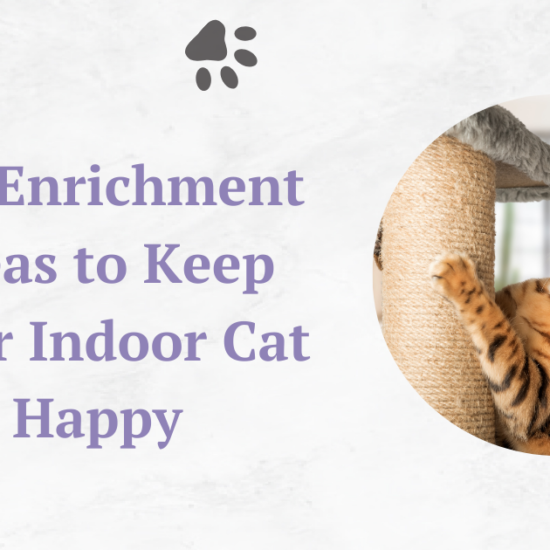Pet adoption may be a life-changing and fulfilling experience for seniors, providing them with companionship, meaning, and joy in their golden years. However, adopting a pet as a senior presents its own set of obstacles and responsibilities.
Table of Contents
Introduction
In this article, we will look at the distinct challenges that seniors may have when adopting a pet and offer practical solutions to ensure a happy and fulfilling relationship with their new furry companion.
Major Challenges in Pet Adoption for Seniors

While looking for pet adoption for senior citizens, they must anticipate the following challenges:
Physical Restrictions
As elders age, they may have physical restrictions that impair their capacity to successfully care for a pet. Routine tasks, such as walking a dog or cleaning a litter box, may become difficult due to decreasing movement or strength. In some situations, seniors may have difficulty bending down to feed or brush their pets.
To overcome these challenges in pet adoption for seniors, consider acquiring a pet that requires little physical effort, such as a small breed dog that doesn’t require long walks or a cat that doesn’t require outdoor activity. Additionally, elders can recruit the assistance of family members, friends, or pet caregivers for specific activities such as dog walking or litter box cleaning. Collaboration not only guarantees that the requirements of the pet are fulfilled, but it also develops a sense of community and social connection for elders.
Pet care can also be made easier for elders with physical limitations with home adaptations. Installing pet ramps or employing elevated feeding stations, for example, can lessen the need for seniors to bend down. Furthermore, elders can designate a distinct location in their home where the pet has easy access to food, water, and a pleasant resting place.
Financial Issues
Seniors on fixed incomes may be concerned about the financial obligations that come with owning a pet. Rising healthcare expenditures and everyday living expenses might make it difficult to justify the cost of pet adoption for senior citizens.
Prepare a budget expressly for pet-related expenses to manage the financial challenges of pet adoption for seniors. This budget should account for pet food, veterinarian care, grooming, and any other items that may be required. Seniors can also save money by buying pet food in bulk or obtaining cheap veterinarian treatments through local clinics or senior-specific pet adoption programs.
Another effective alternative for managing prospective veterinary bills is pet insurance. While pet insurance has a monthly fee, it can drastically minimize out-of-pocket expenses in the event of an unforeseen medical emergency. Seniors should thoroughly research different insurance policies, compare coverage possibilities, and select a plan that fits their budget and their pet’s needs.
Participating in pet-related discounts and loyalty programs can also assist seniors in saving money on pet supplies. Many pet retailers offer senior discounts, and loyalty programs can provide frequent consumers with benefits and unique offerings.
Considerations for the Lifespan
Seniors may be concerned about the longevity of the pet they choose. The uncertainty about who will care for the pet in the event of their death can be painful as they mature.
Address these challenges in pet adoption for seniors by adopting dogs with longer lifespans. Small dog breeds and some cat breeds, for example, have longer lifespans than larger dogs. Choosing a pet with a life expectancy comparable to or greater than the senior’s can provide reassurance that the pet’s care will be manageable throughout the senior’s golden years.
Seniors should also discuss their wishes for the future care of their pets with family members or close friends. Making a plan and designating a caregiver in the event of an emergency can help to alleviate concerns about the pet’s well-being.
Some seniors may even consider getting their senior pets. Senior pets are frequently overlooked in shelters, but they can make excellent companions for the elderly. Adopting a senior pet ensures that both the pet and the senior can enjoy their golden years together, forming a special bond that can bring both parties immense joy and comfort.
Allergies and Health Concerns
Seniors who have pre-existing medical conditions or allergies may be hesitant to adopt pets. Fear of allergies or the possibility of worsening health conditions as a result of pet dander can make it difficult to bring a new animal into the home.
Seniors should consult with their healthcare provider before adopting a pet if they have any health concerns. If you have allergies or respiratory problems, you can find out if owning a pet is a good idea. In some cases, veterinarians may recommend specific pet breeds that are hypoallergenic or less likely to cause allergic reactions.
Non-traditional pets may be an option for seniors with allergies. Fish, reptiles, or small rodents like guinea pigs or hamsters can provide companionship without the risk of allergic reactions to pet dander. These pets also have lower care requirements, making them ideal for seniors with limited mobility.
If allergies are an issue, seniors can spend time with the pet they want to adopt before making a decision. Spending time in the pet’s environment and interacting with the animal can help determine whether the allergies are manageable for pet adoption for senior citizens.
Social Exclusion
While pets provide companionship, seniors may be concerned that having a pet will limit their ability to socialize with others or travel. This fear may cause hesitation in proceeding with pet adoption.
Seniors should prioritize maintaining their existing social connections while incorporating their new pet into their social activities to alleviate feelings of social isolation. Seniors, for example, can take their dogs to pet-friendly parks to meet and interact with other pet owners. Joining pet-related clubs or community activities can also provide opportunities for socialization.
Seniors can also engage in pet-related activities with family and friends. Pet-friendly gatherings or outings can help strengthen bonds with loved ones while also incorporating the pet into social events.
Furthermore, pets can serve as conversation starters and allow seniors to interact with new people. Walking the dog or sitting in a pet-friendly outdoor area can spark spontaneous conversations with other pet owners or admirers, fostering social connections and decreasing feelings of isolation.
Brilliant Tips for Choosing the Right Pet for Seniors
Choose the perfect pet for adoption for senior citizens can be made easier if you keep the following factors in consideration:

Selecting the Best Pet
One of the key considerations for pet adoption for senior citizens is selecting the right companion that suits their lifestyle and physical capabilities. Small dogs or cats are often preferred by seniors with limited mobility as they require less exercise and are easier to handle. These breeds are well-suited for apartment living and can be content with indoor play and short walks.
Additionally, seniors can consider adopting older pets that have a calmer demeanor and are less demanding in terms of exercise and training. Many senior pets are already housetrained and have basic obedience skills, making them an ideal match for seniors seeking a more relaxed and low-maintenance companion.
Seniors need to spend time interacting with potential pets before making a decision. Visiting local animal shelters or rescue organizations allows seniors to meet and get to know different animals, gauging their temperament and compatibility. During these interactions, seniors should pay attention to how the pet responds to them and if they feel a connection with the animal.
Furthermore, seniors should consider their living situation when choosing a pet. Those residing in apartments or communities with specific pet policies may opt for cats or smaller dogs that are suitable for indoor living. On the other hand, seniors with more space and access to outdoor areas might prefer larger dogs or pets that enjoy outdoor play.
Seeking Support from Family and Friends

For seniors considering pet adoption, discussing their decision with family and friends is crucial. Having a support network in place can reassure seniors that they will have help and assistance when needed. Family members and close friends can take turns helping with pet care, such as walking the dog or pet-sitting when the senior needs to travel.
Moreover, involving family members in choosing the right pet for seniors makes it a collective decision, fostering a sense of unity and excitement about the new addition to the family. Family members can also provide valuable insights and suggestions, helping seniors make a well-informed decision about the type of pet that best fits their lifestyle.
In cases where seniors have adult children or relatives living nearby, they can establish an informal pet co-ownership arrangement. This means that the pet spends time with both the senior and the family member, ensuring the animal receives sufficient attention and care while strengthening family bonds.
Financial Planning

Pet ownership entails various expenses, and for seniors on fixed incomes, financial planning is essential. Create a detailed budget that includes the cost of pet food, veterinary care, grooming, toys, and other supplies for choosing the right pet for seniors. Planning for routine veterinary visits and possible emergencies can help seniors avoid financial strain and ensure that they can provide the best care for their pets.
Seniors may explore pet insurance options to help manage unexpected veterinary costs. Pet insurance can cover medical treatments, surgeries, and medications, providing peace of mind and reducing out-of-pocket expenses. Seniors need to research different insurance plans, compare coverage, and choose one that aligns with their budget and the needs of their pet.
In addition to pet insurance, seniors can establish a separate savings fund dedicated to pet-related expenses. Setting aside a small amount each month can accumulate into a significant emergency fund over time, ensuring that the pet’s needs are always met, regardless of unexpected circumstances.
Considering Senior-Specific Adoption Programs

To encourage pet adoption among seniors and help match them with suitable pets, many animal shelters and rescue organizations have introduced senior-specific adoption programs. These programs are designed to connect older animals with older adults, creating mutually beneficial partnerships.
In senior-specific adoption programs, adoption fees are often waived or discounted for seniors. This financial incentive can make pet ownership more accessible for seniors on limited budgets. Additionally, these programs often offer educational resources and support for seniors, ensuring they have the information and guidance they need to care for their new pets properly.
The staff and volunteers at these organizations are knowledgeable about pets and can help seniors choose the right pet based on their preferences and lifestyle. They can provide information about the pet’s temperament, health history, and any special requirements, making it easier for seniors to make an informed decision.

For some seniors, the prospect of training a new pet may be daunting, especially if they haven’t had a pet for many years or if they face physical challenges that make training difficult. In such cases, adopting a pet that has undergone basic training or behavioral assessments can be a great solution.
Many animal shelters and rescue organizations work with trained volunteers or professional dog trainers to provide obedience training to animals before they are available for adoption. These trained pets are often more adaptable to living in a new home and may require less intensive training from the senior.
In addition to adopting a trained pet, seniors can enroll in pet training classes tailored for older adults. These classes provide seniors with the skills and confidence they need to handle and communicate effectively with their new companions. Training classes also serve as a social opportunity, allowing seniors to connect with other pet owners in their age group and share their experiences and challenges.
Preparing the Living Space
Creating a safe and comfortable living space for the new pet is essential to ensuring a smooth transition into the senior’s home. Seniors should pet-proof their living areas, removing potential hazards and creating a safe environment for the pets to explore.
For instance, seniors should secure loose wires and cables to prevent the pet from chewing on them, which can be harmful to both the animal and the household. Additionally, toxic plants and substances should be removed from the living space to avoid accidental ingestion by the pet.
Seniors can designate a specific area in their home as the pet sanctuary, complete with a cozy bed or pet crate. Having a designated space allows the pet to feel secure and provides a sense of routine and structure. Gradually introducing the pet to other areas of the home allows them to become familiar with their surroundings at their own pace.
Seniors need to consider their physical comfort when preparing their living space. Placing pet bowls, litter boxes, and toys at a height that doesn’t require excessive bending or reaching can reduce strain on the senior’s body and make daily pet care more manageable.
Note: There might be affiliate links mentioned here. We may receive a commission if you purchase a product through an affiliate link. There is no additional charge for you. Please do your own research before making any online purchases.
Companionship and Health Benefits
The companionship that pets provide is invaluable, and this is especially true for seniors who may experience feelings of loneliness and isolation. Having a pet by their side offers unconditional love and a sense of purpose, reducing stress and promoting emotional well-being.
Studies have shown that pet ownership can have numerous health benefits for seniors. Interacting with pets can trigger the release of oxytocin, a hormone associated with bonding and relaxation, which can help reduce stress and anxiety. The act of petting a cat or dog can also lower blood pressure and heart rate, contributing to improved cardiovascular health.
Pets can also serve as motivators for seniors to stay active and maintain a daily routine. Regular walks with a dog or playtime with a cat not only benefit the pet but also provide seniors with much-needed physical exercise and fresh air.

Addressing Health Concerns
Seniors with pre-existing health conditions or allergies should consult their doctors before adopting a pet. By addressing any health concerns, seniors can ensure that pet ownership does not adversely affect their well-being.
For seniors with allergies to pet dander, hypoallergenic breeds or certain types of pets, such as reptiles or fish, may be more suitable. Regular cleaning and grooming of the pet can also help reduce allergens in the home.
Seniors with mobility issues or physical limitations can consider adopting a low-energy pet that requires minimal exercise. Small dogs or cats can be more manageable for seniors who may have difficulty walking or bending down.
In conclusion, pet adoption can be a rewarding and fulfilling experience for seniors, providing them with companionship, joy, and a renewed sense of purpose. By carefully considering the challenges that come with pet ownership and making informed decisions, seniors can ensure a successful and happy partnership with their new furry friend. The love and devotion that pets offer can enrich the lives of seniors in immeasurable ways, making the journey of pet adoption in the golden years truly special.
FAQs
What challenges do seniors face when adopting a pet?
Seniors may encounter various challenges during the pet adoption process, including physical limitations, financial concerns, lifespan considerations, health issues, and fears of social isolation.
How can seniors overcome physical limitations to care for a pet?
Seniors can choose a pet that requires minimal physical exertion, like a small-breed dog or a cat. They can also seek assistance from family members, friends, or pet caregivers to help with tasks like dog walking or litter box cleaning. Home modifications, such as installing pet ramps, can also make pet care more manageable.
What financial considerations should seniors take into account before adopting a pet?
Seniors should create a budget specifically for pet-related expenses, including pet food, veterinary care, grooming, and supplies. Exploring pet insurance options and taking advantage of pet-related discounts and loyalty programs can also help manage costs.
How can seniors address concerns about the lifespan of their adopted pets?
Seniors can consider adopting pets with longer lifespans or choosing senior pets that are often overlooked in shelters. Open communication with family members or friends about future pet care plans can also provide reassurance about the pet’s well-being.
What should seniors with health issues or allergies consider before adopting a pet?
Seniors should consult with their healthcare provider to determine if pet ownership is suitable for their health condition. Allergies can be managed by considering hypoallergenic pet breeds or non-traditional pets like fish or reptiles.
How can seniors balance pet ownership with social activities and travel?
Seniors can incorporate their pets into social activities by visiting pet-friendly parks and joining pet-related clubs or activities. Involving family members and friends in pet-related gatherings can also strengthen social connections. Pets can serve as conversation starters, facilitating interactions with new people.
What considerations should seniors make when choosing the right pet?
Seniors should consider their lifestyle, living situation, and physical capabilities when selecting a pet. Small dogs or cats and older pets with calmer temperaments may be suitable choices.
How can seniors seek support from family and friends during the pet adoption process?
Discussing the decision with family and friends is essential, as they can offer assistance with pet care and provide emotional support. Informal pet co-ownership arrangements can also be established to ensure the pet receives ample attention and care.
How can seniors address health concerns when adopting a pet?
Seniors should consult with their healthcare provider before adopting a pet and consider pet breeds that are less likely to trigger allergies. Spending time with the specific pet before adoption can help gauge compatibility with allergies.
What are the companionship and health benefits of pet ownership for seniors?
Pets provide companionship, reduce loneliness, and offer unconditional love. Interacting with pets can trigger the release of oxytocin, reducing stress and anxiety. Regular pet-related activities like walks contribute to improved physical health for seniors.
Conclusion
Pet adoption for seniors offers a plethora of benefits, from reduced loneliness to improved physical health. By addressing the challenges and considering the unique needs of seniors during the adoption process, a beautiful and fulfilling companionship can be forged between them and their new pet. Embracing the joys of pet ownership in the golden years can create cherished memories and bring a renewed sense of purpose and happiness to seniors’ lives.












